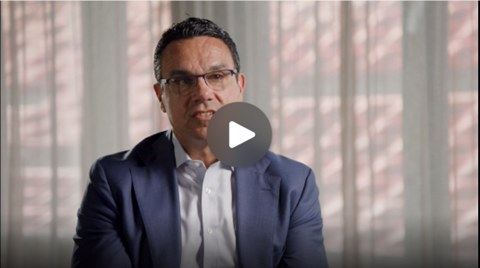Automatic language translation
Our website uses an automatic service to translate our content into different languages. These translations should be used as a guide only. See our Accessibility page for further information.
Aboriginal children and young people deserve to grow up connected to their culture, Country and kin. This connection contributes to a sense of identity and belonging, which are important foundations for wellbeing and resilience.
In line with the Aboriginal and Torres Strait Islander Child Placement Principles, the NSW government is committed to ensuring that Aboriginal children and young people in out-of-home care (OOHC) and their carers are case managed and supported by Aboriginal community-controlled OOHC agencies.
To fulfil this commitment, NSW Department of Communities and Justice (DCJ) is transferring the case management of Aboriginal young people and their carers to Aboriginal community-controlled OOHC agencies. These agencies are best placed to facilitate cultural connection and provide carers with cultural capability training.

OOHC providers explain why Aboriginal organisations are best placed to care for Aboriginal young people.
OOHC providers explain why Aboriginal organisations are best placed to care for Aboriginal young people.
Presentation screen with text that reads ‘Aboriginal OOHC Transition Project launch, Brendan Thomas, Deputy Secretary, Transforming Aboriginal Outcomes’]
Brendan Thomas, Deputy Secretary, Transforming Aboriginal Outcomes: It’s really exciting that the government’s made this commitment to transition the case management of Aboriginal children to Aboriginal-run organisations.
[Audience in a conference room]
John Leha, CEO, AbSec: Aboriginal community-controlled organisations speaks to the founding principles of self-determination, and acknowledges the strength that Aboriginal community-controlled organisations have and the role that they play in sustaining Aboriginal communities across the state of NSW.
[Woman and child playing on a swing]
[Man and woman playing with twin toddlers]
Dana Clarke, CEO, Barrun Dalai Aboriginal Corporation: It’s also about Aboriginal children and young people engaging with their community, engaging with their culture, engaging with their identity, knowing who they are and where they belong.
Maree Walk, CEO, Association of Children’s Welfare Agencies: This is a great opportunity for Aboriginal children, a great opportunity for us carers as well, to be working with ACCOs in delivering culturally sensitive and culturally safe care.
Bendan Thomas: We’re managing this transition in a way that focuses on the best interest of the children and looking at which children can be restored back to their families.
[Man and woman sitting on a couch with young children on their laps]
[Man and woman walking across a bridge with a small child]
Penny Hood, Executive Leader, Children and Families portfolio, Barnardos Australia: As a non-Aboriginal organisation, we are putting 100 percent of our efforts behind supporting the transition of Aboriginal kids to Aboriginal community-controlled organisations. So what that looks like for us is signaling through our organisation that Aboriginal children need to be cared for by Aboriginal community.
Claire Robbs, CEO, Life Without Barriers: The first thing is that we hope that it helps us form really meaningful partnerships with Aboriginal-controlled organisations, peaks and other stakeholders. We hope we can enhance outcomes for kids and families by partnering with others around the system reform that needs to happen, so we don’t have as many children coming into care, and if they are, they’re not coming into care with organisations like ours, they’re coming into care in community.
John Leha: The transition process will instill confidence in the Aboriginal community because it is an indication from the Department of Communities and Justice that there is a need for Aboriginal-led decision making.
Dana Clarke: Our children absolutely deserve the right to be restored to family, to be raised on land. It’s so important.
[Aboriginal children participating in Aboriginal cultural dances]
[Arial shot of Lightning Ridge]
Brendan Thomas: We know that when Aboriginal people are in charge of their own destinies, the outcomes are always better.
[NSW government logo]
The Aboriginal OOHC transition is important for DCJ and our partners, the NSW Child, Family and Community Peak Aboriginal Corporation (AbSec) and the Association of Children's Welfare Agencies (ACWA). The transition aims to provide better outcomes for Aboriginal children and young people in OOHC through culturally-safe care, carer support and case management.
The NSW Government is committed to improving outcomes for Aboriginal people as set out in the 2019 Family is Culture Review and the National Agreement on Closing the Gap, and to reducing over-representation of Aboriginal people in DCJ service systems.
The transition process will occur gradually, starting in areas where Aboriginal OOHC agencies are already established, and for children and young people currently with non-Aboriginal OOHC agencies. There will be priority cohorts for transfers:
The transfer rate will depend on the Aboriginal OOHC agencies in an area and how many transfers they can sustainably accept. Support and collaboration among both Aboriginal and non-Aboriginal OOHC agencies will be key throughout the process to ensure successful case management transfers.
For most children and young people in care, the transfer will cause little disruption to their daily lives. Moving to a new agency will not mean a change of carer or address, and children can still see siblings, family and friends as they do now.
Transferring to an Aboriginal OOHC agency will mean having a new caseworker, and culturally safe support and case management. The new agency will provide carers with resources and training to help young people in their care maintain strong cultural connections.
When this will happen depends on where you live, whether any Aboriginal OOHC agencies have been established yet and their capacity to take the transfer.
The transfer affects children and young people in statutory foster care, relative/kinship care, intensive therapeutic care (ITC) and residential care. Currently no Aboriginal OOHC agencies provide ITC and residential care, however this may change in the future.
OOHC agencies transferring case management are key to the success of the project. To prepare to transfer case management, permanency support program (PSP) providers can read the PSP provider fact sheet.
For assistance with developing and managing transition plans, please consult your contract manager.
20 Sep 2023